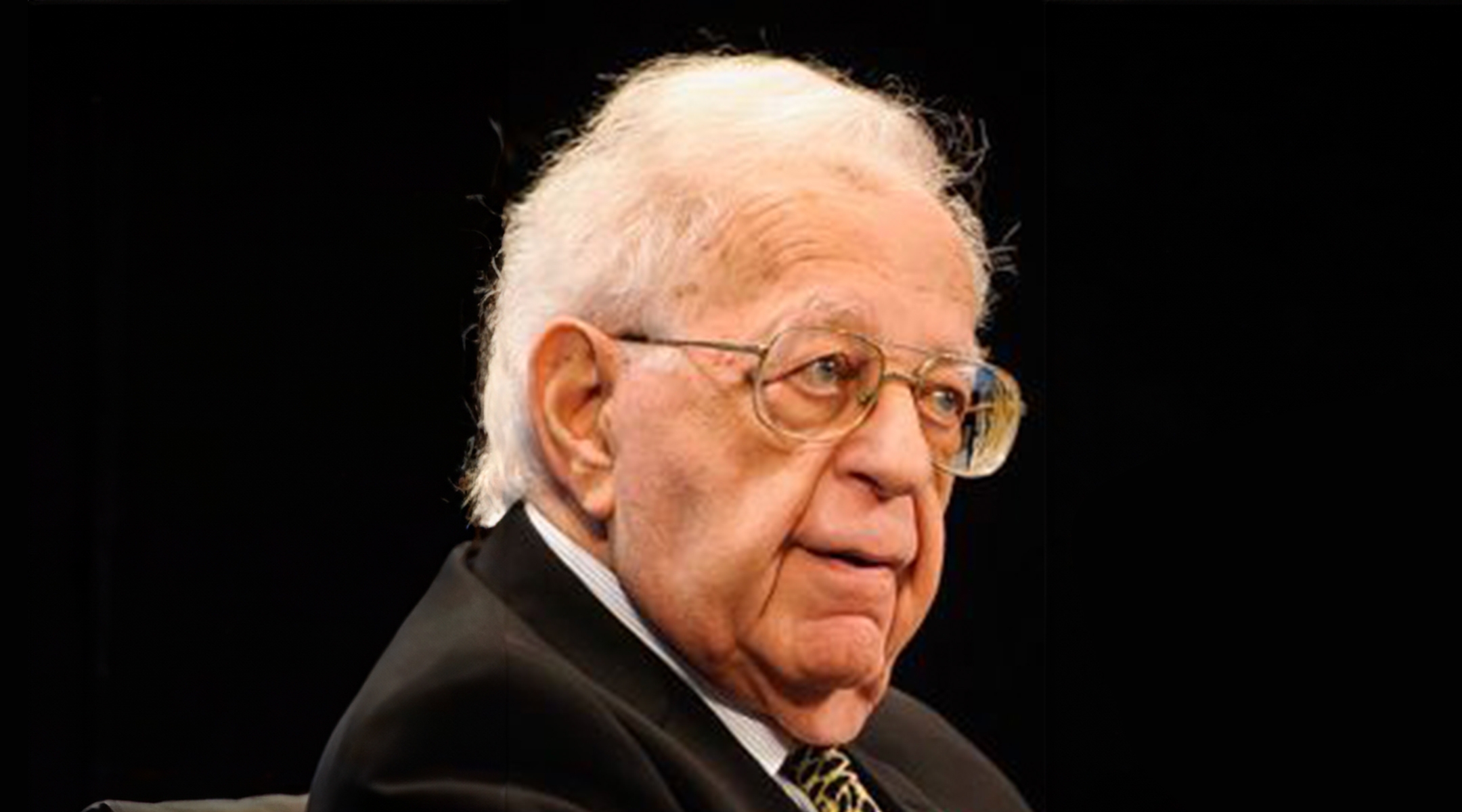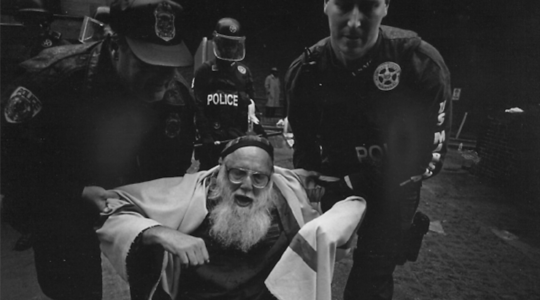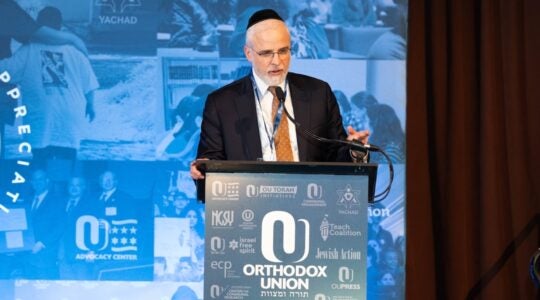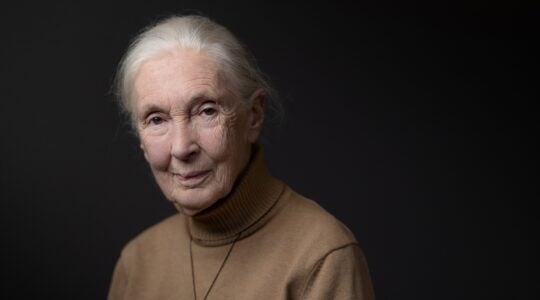(JTA) — Shlomo Avineri, a leading Israeli political philosopher, left-leaning former director-general of the country’s foreign ministry and clear-eyed critic of both sides to the Israeli-Palestinian conflict, died on Friday. He was 90.
Avineri was a longtime professor of political science at Hebrew University, where he produced important scholarship on Zionist thinkers Theodor Herzl and Moses Hess as well as the works of Karl Marx and G.W.F. Hegel. He applied his historical perspective as a frequent commentator in the Israeli and foreign media, and as a regular columnist for the Israeli daily Haaretz.
In 1975, the government of Prime Minister Yitzhak Rabin appointed him as director-general of the foreign ministry, then headed by Yigal Allon. The right-wing Likud party, then in opposition, bitterly opposed the appointment of Avineri, who in 1971 edited a book that explored the possibility of negotiations with the Palestine Liberation Organization when such talks were still illegal. When Likud took office in 1977 with the election of Menachem Begin, Avineri submitted his resignation.
At the time, many in Israel thought Avineri would lead a dovish challenge to the humbled Labor party. “During his one year tenure at the Foreign Ministry he became a familiar face on Israeli television, to such a degree that aides to Allon complained that Avineri was upstaging his boss,” the Jewish Telegraphic Agency reported in 1977.
Nevertheless, he returned to teaching at Hebrew University. He headed the political science department and devoted himself to researching the intellectual origins of Zionism.
Even while producing more than a dozen books on 19th-century political thought, Avineri remained deeply engaged with current events in Israel. In a 2011 article for Haaretz, he urged Israelis to understand the Palestinian perspective, but also criticized the Palestinian leadership for denying essential facts about the founding of Israel.
The 1948 war should “not be taught as a battle between narratives. In the final analysis, there is a historical truth,” he wrote. “And without ignoring the suffering of the other, that is how such sensitive issues must be taught.”
Avineri was born Jerzy Wiener in Bielsko, Poland, in 1933. His family arrived in then-Palestine in 1939 and settled in Herzliya. He studied political science and history at the Hebrew University of Jerusalem, where he received his doctorate.
As a visiting scholar he held appointments at Yale, Cornell, the Cardozo School of Law in New York and Northwestern University, among others. He was also a visiting scholar at the Wilson Center, the Brookings Institution and the Carnegie Endowment for International Peace.
After the fall of the Soviet Union, he advised Eastern European nations about democratization, and in 1989 he served as an observer to the elections in Hungary and Czechoslovakia.
Avineri was awarded the Rubin Prize in 1969 for his research, the Naftali Prize in 1971 and the Present Tense Award from the American Jewish Committee in 1982. In 1996 he received the Israel Prize, the country’s highest honor, for political science.
Avineri is survived by his daughter Maayan. His wife Devora (Nadler) Avineri died in 2022.
JTA has documented Jewish history in real-time for over a century. Keep our journalism strong by joining us in supporting independent, award-winning reporting.






